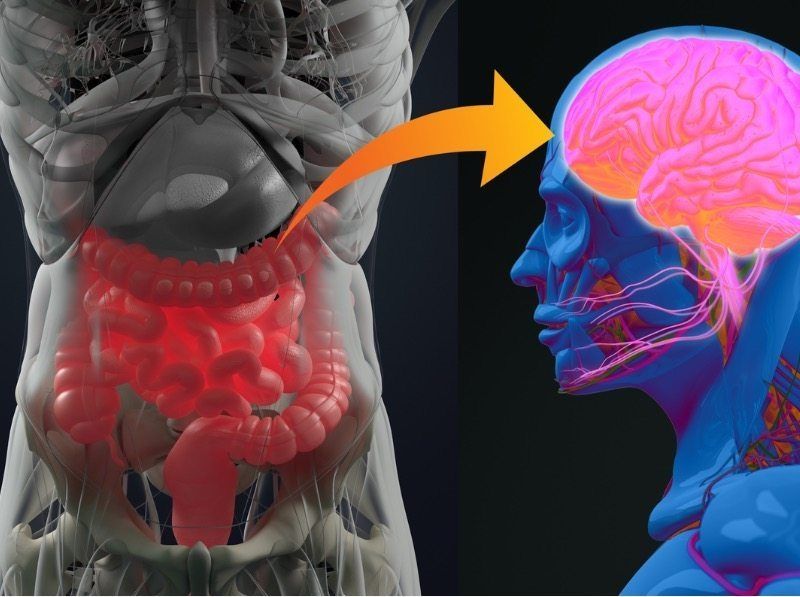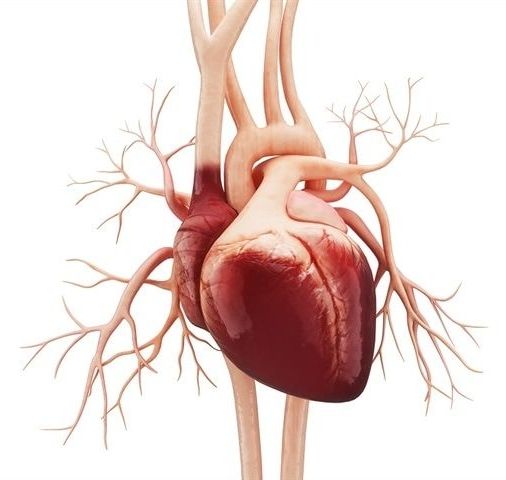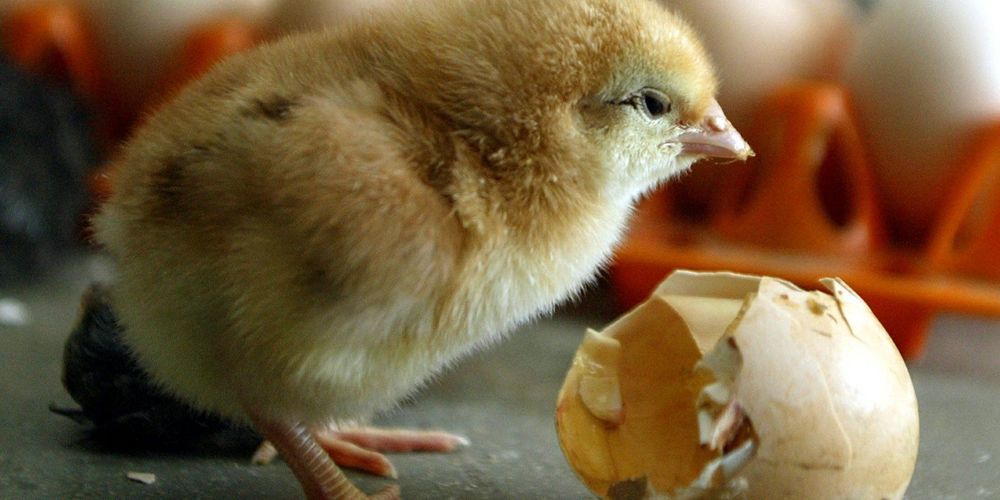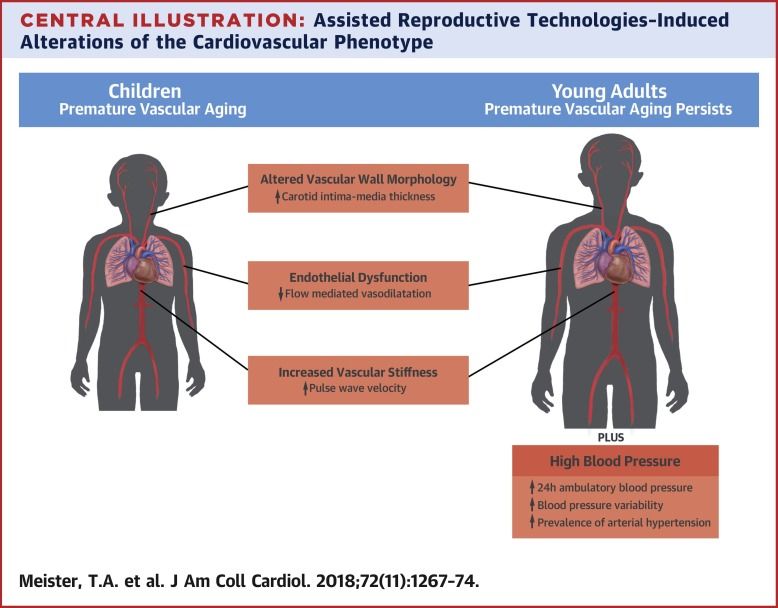It hasn’t been determined whether it led to any rescues yet.



Food additives known as dietary emulsifiers, commonly found in processed foods to improve texture and extend shelf life, may adversely affect anxiety-related and social behaviors in mice, Georgia State researchers have found.
The scientists also observed sex differences in the mice’s behavioral patterns, suggesting that emulsifiers affect the brain via distinct mechanisms in males and females.
The study, published in Scientific Reports, was led by Geert de Vries, professor of neuroscience and associate vice president for research at Georgia State, and Benoit Chassaing, assistant professor of neuroscience. Andrew T. Gewirtz, professor in the Institute for Biomedical Sciences, also contributed.

The Consumer Electronics Show in Las Vegas revealed what the tech world has in store for us this year. From the spectacular to the controversial – as well as some total tosh – here are 10 of the most memorable products unveiled at CES 2019 last week.
Also unveiled in Las Vegas: the world’s first rollable TV and Alexa for your toilet.

Research suggests that a gene that governs the body’s biological (circadian) clock acts differently in males versus females and may protect females from heart disease. The study is the first to analyze circadian blood pressure rhythms in female mice. The research, published ahead of print in the American Journal of Physiology—Regulatory, Integrative and Comparative Physiology, was chosen as an APSselect article for January.
The body’s circadian clock—the biological clock that organizes bodily activities over a 24-hour period— contributes to normal variations in blood pressure and heart function over the course of the day. In most healthy humans, blood pressure dips at night. People who do not experience this temporary drop, called “non-dippers,” are more likely to develop heart disease. The circadian clock is made up of four main proteins (encoded by “clock genes”) that regulate close to half of all genes in the body, including those important for blood pressure regulation.
These results suggest that the lack of PER1 acts differently in males and females. The findings are consistent with research showing that premenopausal women are less likely to be non-dippers than men of the same age. “This study represents an important step in understanding sex differences in the regulation of cardiovascular function by the circadian clock,” the researchers wrote.

Power suits, robotaxis, Leonardo da Vinci mania—just a few of the things to look out for in 2019. But what else will make our top ten stories for the year ahead?
Click here to subscribe to The Economist on YouTube: https://econ.st/2xvTKdy
What will be the biggest stories of the year ahead?
00:35 — 10 — Powered Clothing.
In 2019 power dressing will take on a whole new meaning when this strange-looking clothing hits the market. Not so much high fashion as high tech, it’s a suit with built-in power that will literally get people moving. Part of the wearable robotics revolution, the suit is made up of battery-powered muscle packs which contract just like a human muscle to boost the wearer’s strength. With the global population of over 60s expected to more than double by 2050, and retirement age increasing, there’s no shortage of potential markets. But don’t expect the suits to ease the burden on aching limbs and overstretched health services anytime soon — as these suits don’t come cheap. According to the manufacturer they’ll retail for around the cost of a bespoke tailored suit.
02:13 — 9 — The year of cheap flights.
2019 will be the year low-cost long-haul travel takes off. You’ll be able to buy a ten thousand mile flight from London to Sydney for around $350 and this is why. The world will boast two new state-of-the-art mega hub airports and competition between them will drive down the cost of flying. Daxing Airport outside Beijing is due to open in 2019 and will feed growing demand for air travel in China. Beijing already has one of the world’s biggest airports and for China this new mega hub will send an important message to the world. Rivaling Daxing as a national symbol of global prestige will be a new mega hub airport in Istanbul. Opened in 2018 it covers a staggering 26 square miles — an area larger than the island of Manhattan. And in 2019 consumers will again be the beneficiaries of a state sponsored economic push. But the low fares offered by competition between these hubs could be short-lived.
04:06 — 8 Stonewall riots at 50.
In 2019 LGBT communities will mark the anniversary of a seminal event — it will be 50 years since patrons at New York gay bar, The Stonewall Inn, resisted police attempts to arrest them. The resulting Stonewall riots kick-started the modern gay rights movement. In many countries the laws that continue to allow intolerance and inequality have their roots in religion. But one former British colony has given hope to the global movement for change. In 2018 India decriminalized homosexuality and gay rights campaigners hope 2019 will be the year other former British colonies follow suit. In February Kenya’s High Court will rule on whether to decriminalize same-sex intimacy which is currently punishable with up to 14 years in prison. Campaigners hope that decriminalization could start a domino effect across Africa.


There’s a positive correlation of assisted reproductive technologies with arterial hypertension. Epigenetics and hormone treatments with IVF are probable causes.
Assisted reproductive technologies (ART) have been shown to induce premature vascular aging in apparently healthy children. In mice, ART-induced premature vascular aging evolves into arterial hypertension. Given the young age of the human ART group, long-term sequelae of ART-induced alterations of the cardiovascular phenotype are unknown.
This study hypothesized that vascular alterations persist in adolescents and young adults conceived by ART and that arterial hypertension possibly represents the first detectable clinically relevant endpoint in this group.
Five years after the initial assessment, the study investigators reassessed vascular function and performed 24-h ambulatory blood pressure (BP) monitoring (ABPM) in 54 young, apparently healthy participants conceived through ART and 43 age- and sex-matched controls.

Evolutionary genetic theory shows that genetic variation can be maintained when selection favors different versions of the same genes in males and females—an inevitable outcome of having separate sexes. That is, for many genes, there may not be a universally ‘best’ version, but rather one is best for males and one is best for females. This is known as sexually antagonistic genetic variation, but it might only be maintained under a narrow set of conditions, limiting its prevalence in nature. However, a new study by Dr. Karl Grieshop and Professor Göran Arnqvist, published in PLoS Biology, may change this view.
“One of the simplest ways for sexually antagonistic selection to maintain genetic variation in fitness is via sex-specific dominance reversal, where neither version of a gene is always dominant or recessive, but rather the version that benefits a given sex is also dominant in that sex. So whether a given version of a gene is dominant or recessive to the other will depend upon which sex it is in,” says Dr. Karl Grieshop.

So far, robots have primarily been developed to fulfill utilitarian purposes, assisting humans or serving as tools to facilitate the completion of particular tasks. As robots become more human-like, however, this could pose significant challenges, particularly for robots built to engage with humans socially.
Humans have used sex dolls as inanimate objects for sexual pleasure throughout history. Animated sex robots, social robots created to meet humans’ needs for sex and affection, offer more. Due to recent developments in robotics and AI, sex robots are now becoming more advanced and human-like. Purchasers can have them customised both in appearance and in how they speak and behave to simulate intimacy, warmth and emotion.
Currently, sex robots are inanimate things, able to simulate but not engage in mutual intimacies. In the future, however, technological advances might allow researchers to manufacture sentient, self-aware sex robots with feelings, or sexbots. The implications of the availability of sexbots as customisable perfect partners for intimate relationships with humans are potentially vast.

An elusive medical advance might finally be within grasp, one that could make some couples’ sex lives a lot more convenient. This week, researchers officially kicked off the first wide-scale clinical trial of a male contraceptive topical gel.
The trial, funded by the National Institute of Child Health and Human Development (NICHD), is set to enroll 420 relatively healthy and young couples. The couples will be recruited from nine different study sites in seven countries scattered across the globe, including Chile, England, and Sweden. But the first batch of volunteers will come from sites in the U.S. in Seattle, California, and Kansas.